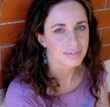'The past shapes the present – they teach us that in schools and universities. (Shapes? Infiltrates, more like; imbues, infuses.) This past cannot be visited like an ageing aunt. It doesn’t live in little zoo enclosures. Half the time, this past is nothing less than the beating heart of the present. So, how to speak of the searing, unpindownable power that the past – ours, our family’s, our culture’s – wields in the present?
'Stories are not enough, even though they are essential. And books about history, books of psychology – the best of them take us closer, but still not close enough.
'Maria Tumarkin's Axiomatic is a boundary-shifting fusion of thinking, storytelling, reportage and meditation. It takes as its starting point five axioms:
- ‘Give Me a Child Before the Age of Seven and I’ll Give You the Woman’
- ‘History Repeats Itself…’
- ‘Those Who Forget the Past are Condemned to Repeat It’
- ‘You Can’t Enter The Same River Twice’
- ‘Time Heals All Wounds’
'These beliefs—or intuitions—about the role the past plays in our present are often evoked as if they are timeless and self-evident truths. It is precisely because they are neither, yet still we are persuaded by them, that they tell us a great deal about the forces that shape our culture and the way we live.
'Axiomatic is Tumarkin's fourth book of non-fiction, and her most pioneering. Her three previous books, Otherland (2010), Courage (2007), and Traumascapes (2005), have each and all been critically acclaimed and shortlisted for major prizes.
'More than seven full and long years in the making, and utilising her time as a Sidney Myer Creative Fellow, Axiomatic actively seeks to reset the non-fiction form in Australia.'
Source: Publisher's blurb.

